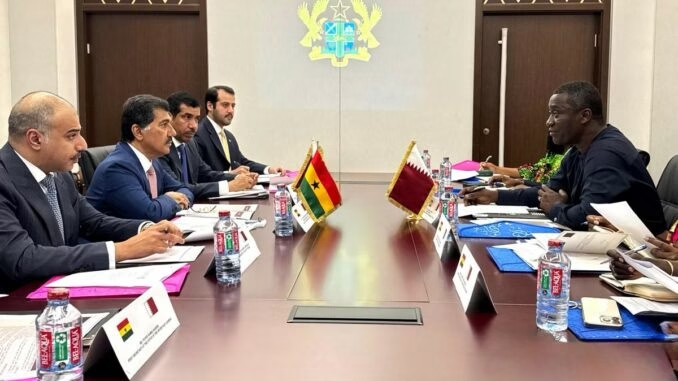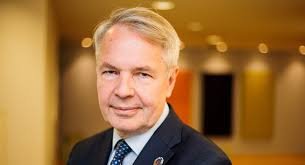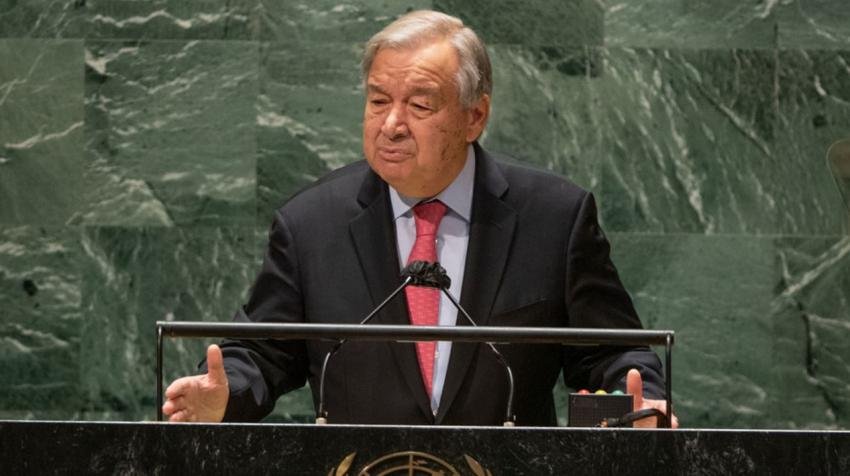Introduction to the Meeting
On a significant diplomatic mission, H.E. Dr. Ahmed bin Mohammed Al-Sayed, Qatar’s Minister of State for Foreign Trade Affairs, recently held a meeting with H.E. Samuel Okudzeto Ablakwa, Ghana’s Minister for Foreign Affairs. This high-level discussion is indicative of the strengthened ties and burgeoning trade relations between Qatar and Ghana, two nations striving to augment their economic partnerships.
The meeting took place amidst a backdrop of increasing global economic interdependence and the necessity for strong bilateral relations. Both ministers recognized the potential for extensive collaboration in various sectors, including trade, investment, and technology. Their discussions served not only to reinforce existing ties but also to explore new avenues for mutual benefit, particularly in light of Qatar’s strategic initiative to diversify its economy and Ghana’s ambition to become a leading trade hub in West Africa.
The context of this engagement is particularly relevant as both countries stand on the precipice of pivotal economic developments. Qatar, with its robust financial institutions and established global economic presence, is looking to expand its influence in Africa. Conversely, Ghana’s burgeoning economy offers numerous opportunities, particularly in agriculture, energy, and infrastructure development. This meeting highlights the imperative nature of such diplomatic initiatives in fostering economic growth and stability for both nations.
Furthermore, the engagement exemplifies a broader trend where countries are increasingly seeking partnerships to enhance trade relations, particularly in the wake of challenges such as global supply chain disruptions. The dialogue led by Dr. Al-Sayed and Minister Ablakwa signifies a proactive approach to navigating these hurdles and emphasizes the importance of sustained diplomatic engagement. Ultimately, these discussions are aimed at laying the groundwork for a more robust trade framework that will benefit both Qatar and Ghana in the long term.
Review of Trade and Investment Relations
The trade and investment relations between Qatar and Ghana have shown significant promise over recent years, marking a notable shift towards enhanced economic collaboration. As of the latest data, bilateral trade volumes have steadily increased, reflecting the growing interest from both nations to reinforce their economic ties. In 2022, trade between Qatar and Ghana reached an estimated value of $200 million, with potential for expansion as both countries explore new avenues for cooperation.
A key area of focus in the economic partnership is investment within Ghana’s vibrant sectors. Qatar has demonstrated a keen interest in investing in Ghanaian agriculture, aiming to capitalize on the country’s rich natural resources. Initiatives have emerged targeting agricultural technology and sustainable farming practices, which are essential for achieving food security and improving the livelihoods of local farmers. Additionally, the energy sector presents an attractive opportunity for investment, as Ghana continues to diversify its energy sources and improve infrastructure to accommodate its growing population.
Furthermore, infrastructure development has emerged as a cornerstone of the trade relationship. With Qatar’s expertise in large-scale projects, collaborative efforts in building roads, ports, and housing developments in Ghana can stimulate economic growth and job creation. These ventures not only benefit local communities but also pave the way for enhanced regional connectivity, making it easier for goods and services to traverse borders.
While the current trade relations have shown encouraging statistics, the potential for growth remains substantial. By focusing on sectors such as agriculture, energy, and infrastructure, Qatar and Ghana can foster a mutually beneficial partnership that boosts economic development in both nations. The proactive engagement of both governments in discussions around trade policies further highlights their commitment to elevating these relations for broader prosperity.
Exploring Opportunities for Bilateral Relations
The recent meetings between the ministers of Qatar and Ghana have highlighted a multitude of opportunities for enhancing their bilateral relations. Both nations expressed a commitment to fostering a robust partnership, and numerous initiatives were proposed to promote trade and investment. One of the key areas of focus is the establishment of trade partnerships that would facilitate the exchange of goods and services. By identifying mutual areas of interest, both Qatar and Ghana could increase their trading volumes, benefiting their respective economies.
Additionally, there was a strong emphasis on attracting foreign investments. Qatar, known for its wealth derived from natural resources, has the potential to invest in various sectors in Ghana, including infrastructure, agriculture, and technology. Similarly, Ghana can explore avenues to attract Qatari investments, thereby creating a win-win situation for both countries. Such initiatives could lead to job creation and economic development while enhancing the overall economic landscape of the regions.
Another significant proposition focused on technology exchange and collaboration in education. Strengthening educational ties is crucial; therefore, both governments should consider establishing scholarships and exchange programs to allow students and professionals to gain valuable experiences in each country. Such exchanges can foster mutual understanding and enhance skill development, especially in sectors like information technology and healthcare.
Furthermore, cultural exchange programs could play a vital role in bridging the gap between the two nations. Promoting cultural understanding through art, music, and traditional festivals would not only enrich the bilateral relationship but also deepen people-to-people connections. The commitment to exploring these avenues reflects a clear intent to strengthen ties, ensuring that both Qatar and Ghana can experience sustainable growth driven by collaboration and shared goals.
Addressing Mutual Interests
In the recent discussions between Qatar and Ghana, several key areas of mutual interest emerged, highlighting the potential for collaboration to enhance trade relations. One of the foremost issues was regional stability. Both nations acknowledged that a stable political environment is conducive to economic growth and development. They expressed commitment to work alongside each other in promoting peace and security in the West African region. This commitment stems from the understanding that instability can hinder economic partnerships and deter foreign investments, thereby affecting both countries’ economic aspirations.
Economic collaboration was also a focal point during the meetings. Qatar and Ghana explored avenues for boosting trade and investment through shared initiatives. The dialogue underscored the significance of creating a framework that facilitates interactions between their respective business communities. By fostering a vibrant economic partnership, the two nations can leverage their resources, expertise, and networks to unlock new opportunities for growth. Initiatives such as joint ventures in sectors like agriculture, energy, and technology were discussed, with a particular emphasis on sustainable practices that would benefit both economies.
Shared goals related to development were another crucial aspect of the discourse. Qatar’s experience in infrastructure development and investment aligns well with Ghana’s aspirations to modernize its own infrastructures, such as transportation and telecommunications. Exploring funding options and investment flows can yield significant benefits, especially for Ghana, which is eager to advance its economic agenda while ensuring reciprocal advantages for Qatar. The discussions reinforced the idea that ongoing dialogue is essential in navigating complex trade landscapes and achieving mutual economic objectives.
Ultimately, the meeting served as a vital platform for both countries to reaffirm their commitment to strengthening ties through consistent dialogue and collaboration, which are necessary for realising their shared interests and ambitions in the ever-evolving global trade environment.




